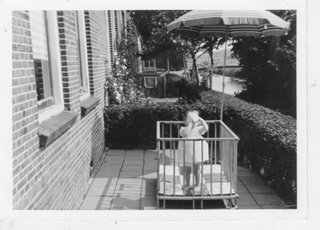do people still use pressure cookers?
I picked one up at a garage sale a few years ago as it reminded me of the one my mom used to have. I finally gave it a good cleaning the other day, and decided to peruse the instruction manual. Well! After extolling the various virtues of their product (it saves time, food flavours and colour, vitamins and minerals, and cooking fuel) it goes on to tell me how this is of benefit to the, um, housewife.
There's pleasure and health for all the family in a Pressure Cooker. For with this modern, scientific saucepan, the pleasure of good eating is matched by the pleasure of fast, simple cooking.... In facing her busy daily schedule, the modern homemaker does not always have time to plan out her menus and arrange combinations to please her entire family. The versatility of your Cooker helps you in this task.... Also when preparing soups and stews, the housewife can be assured that all the health-giving vitamins and minerals contributed by each ingredient will be maintained to the maximum degree.... In addition, every housewife is interested in the saving made through the reduction of cooking fuel costs.... And here's another surprise in store for you: cooking foods for baby and desserts in your Cooker!
Snort. Although the date's not given, it's clear this manual's pretty darn old!







